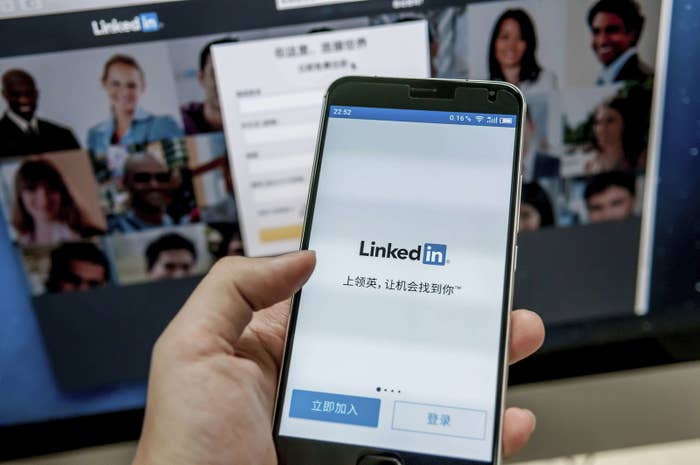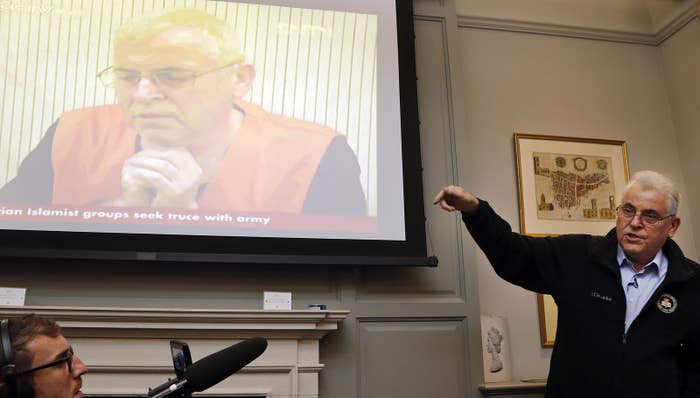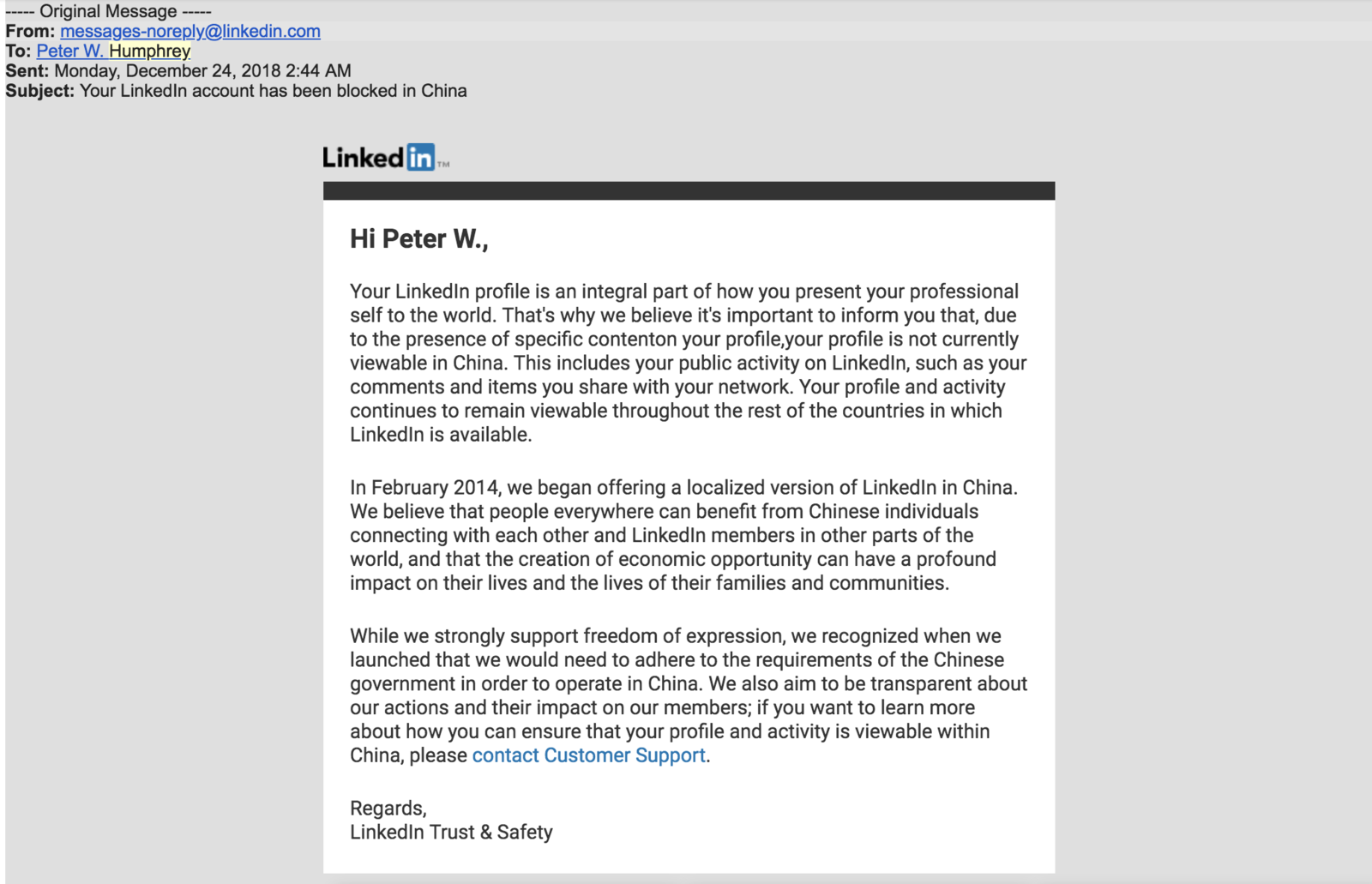
LinkedIn censored the profile and activities of a vocal critic of the Chinese government for users in China, in another apparent response to a censorship request from the government.
Corporate fraud investigator Peter Humphrey, who is British and lives in the UK, was informed by LinkedIn in December that his profile had been censored in China, but after being asked about it by BuzzFeed News this week, LinkedIn restored the page and said it had only been blocked in error.
It comes days after LinkedIn censored the page of a pro-democracy activist in China before also later restoring it after a wave of negative publicity.
Humphrey, 62, and his wife, Yu Yingzeng spent 23 months in jail in China after a court found them guilty in 2013 of illegally obtaining private information about Chinese citizens. Humphrey has said the charges were without basis and written about the grueling treatment he received in detention.
Since his release, Humphrey has been highly critical of Chinese government policy and recently filed a complaint with the British broadcasting regulator over the license given to Chinese state broadcaster China Central Television (CCTV) — the network that once broadcast a video of him in an orange jumpsuit giving a forced confession while he was in detention.

Reached by phone, Humphrey said he believed posting about that complaint prompted Microsoft-owned LinkedIn to censor his profile. He received a notice from the social network on Dec. 24 last year, according to a message he shared with BuzzFeed News, saying his profile would be blocked in China because of the “presence of specific content.”
“It made me feel sick in my stomach,” he said. “This is supposed to be a company operating in the environment of free flow of information. An American company where you have a constitutional amendment that makes freedom of expression sacred.”
Asked why Humphrey's profile had been removed in China, Nicole Leverich, a spokesperson for LinkedIn, said an internal review found the profile was “blocked in error.” It has now been restored for users in China, she said.
“Our Trust and Safety team is updating our internal processes to help prevent an error like this from happening again,” she added. She did not say why Humphrey's profile was blocked in the first place.
The message from LinkedIn is worded very similarly to a message sent last week to US-based pro-democracy activist Zhou Fengsuo. In Zhou's case, the company said the decision to block his profile and activities in China had been a mistake and restored them.
“This is not just about me,” Humphrey said by email after being told his profile had been restored. “How many of these ‘mistakes’ do they make without being forced to correct them? This is not only a China problem. It's the world's problem.”

These incidents underscore the increasing difficulty for Western technology companies of operating in the Chinese market — even for LinkedIn, which is best known as a platform for professional networking rather than political discussion. LinkedIn is obligated to respond to government requests to censor content for users based in China as a condition for it continuing to operate in the country. It is one of the few non-Chinese social networks that is not blocked there — Facebook, YouTube, and Twitter are all inaccessible unless the user disguises their location using a VPN.
China operates one of the most sophisticated internet censorship systems in the world, and the government under President Xi Jinping has taken an increasingly aggressive approach to controlling speech online.
Chinese social networks are heavily censored but users in the country usually see individual posts being taken down rather than whole profiles.
US-based tech companies have recently come under scrutiny for appearing to accept censorship demands from authoritarian governments. Netflix this month took down an episode of Hasan Minhaj's comedy show for users in Saudi Arabia, apparently because it was critical of the Saudi government. And Google faced pressure from the public as well as its own employees over a plan to build a censored version of its search engine for the Chinese market. Following the backlash, Google CEO Sundar Pichai told Congress the company had no plans to launch a search engine in China “right now.”
“These companies were born and bred and allowed to flourish because of the principled values and legal environment we have in the US or Britain, allowing them to be platforms for the free flow of information,” Humphrey said. “They should not bend to this kind of despotic pressure and submit to censorship.”
CORRECTION
Google says it has no plans to launch a search product in China right now. A previous version of this post said the project had been cancelled.
